Estimated reading time 8 minutes, 12 seconds.
Bombardier has felt the effects of the COVID-19 crisis as intensely as any other aerospace company – forecasts of sales of up to 150 aircraft this year have fallen well short and left the company with significant inventory to cover. Despite the shortfall, the company is emerging from a turbulent year with an upbeat forecast for its future growth.
“We have an optimistic future,” Eric Martel, president and CEO, told the International Aerospace Week forum, hosted virtually by Aero Montreal, on Dec 14.
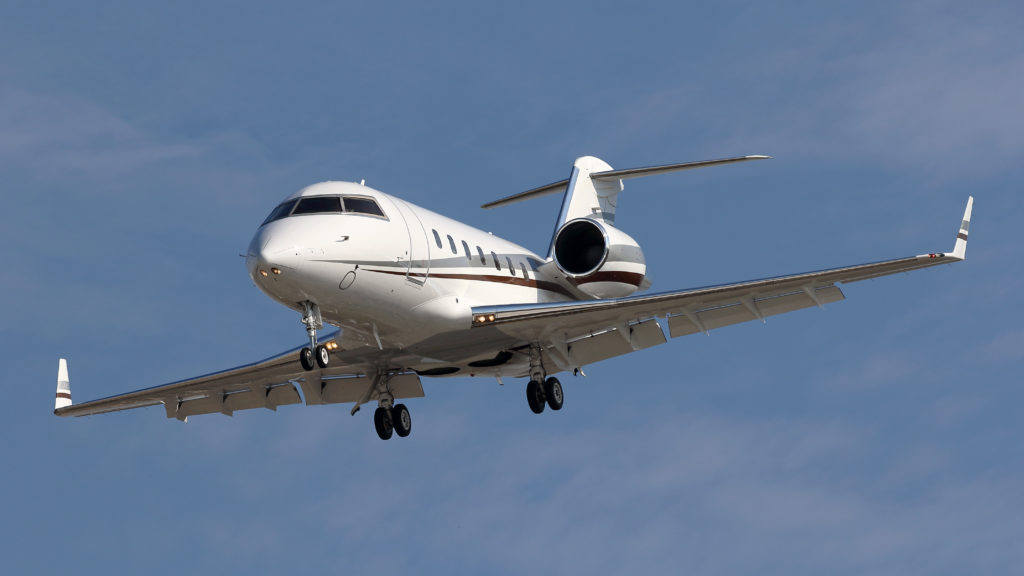
In the first months of the pandemic, Bombardier adjusted production and took measures to “completely reorganize” its factories to protect both employees and customers, a “major undertaking” that limited incidents of COVID to just a few, said Martel. “This was a very challenging time for us. Our financial situation at the time was challenging already. This just added over and above what we were already going through.”
The Montreal-based aircraft and train manufacturer began 2020 carrying more than US$9 billion in debt on its books. By mid-February, it had sold its last stake in the C Series, now A220, program to Airbus, and in June finalized the sale of the CRJ Series program to Mitsubishi Heavy Industries. Months later in September, Bombardier announced a sale and purchase agreement with Alstom for its rail division and, in October, completed the sale of its aerostructure business to Spirit AeroSystems.
While the pandemic has cost the company about US$2 billion between its rail and business jet divisions, and has resulted in planned workforce reductions of about 2,500 employees, its 51 factories and global service centres all resumed operations by early June. The company raised US$1 billion during the summer “to help us get through the crisis, to basically absorb the inventory,” said Martel, who was appointed to his position in March.
Though Bombardier is now a leaner operation solely focused on business jets, it is still a substantial and critical player in the Quebec aerospace ecosystem, he reminded the forum. “This is a smaller company but not a small company.”
Once all the restructuring is complete, Bombardier will still be a $7 billion company, he emphasized.
Bombardier employs about 16,000 people worldwide, 11,000 of whom work in Canada, and almost 9,000 who reside in Quebec. “Despite everything that happened, we are still going to be close to 25 per cent of the (Montreal area aerospace workforce). [And] we know that for every job at Bombardier, there is one of our suppliers in Montreal that has the equivalent job. So we are about 18,000 jobs of the 40,000 (in Montreal).”
The company is also expanding its global footprint as it eyes aftermarket opportunities — opening new facilities in the United Kingdom and Australia, and increasing capacity in Singapore “to be able to do more maintenance and work on our customers’ airplanes.”
With a singular focus on business aviation, Bombardier believes it is well positioned to recover reasonably quickly from the COVID-19 pandemic. While commercial air traffic plunged and has only gradually regained about 35 per cent of its original pre-pandemic ground, business aviation fleet operators are seeing high demand for flying hours, Martel noted. Despite the high costs, many customers are preferencing the health and safety features of executive jet travel. “We believe only 10 to 20 per cent of the people who can afford travelling on business jets do. It remains a huge potential market for us to grow that market,” he told the forum.
Martel pegged the business jet market at an estimated $13 billion annually. While Gulfstream controls about 42 per cent of that, Bombardier holds almost 30 per cent and is first in terms of airplanes delivered on a yearly basis, he said. Moreover, the company is seeing many “newcomers” seeking aircraft or fleet services, and “that is likely to continue after a recovery.” Bombardier, he added, is well established to sell airplanes anywhere in the world.
The aggressive push into the aftermarket and MRO business is intended to capitalize on a growing segment of its current operations. “The aftermarket represents about 20 per cent of our sales,” said Martel, and is more resilient to economic downturns. Bombardier currently has 4,742 airplanes “flying around the world . . . [and there is] huge potential if we do maintenance on all those airplanes.”
He also suggested the singular focus on business aircraft would allow the company to invest more in innovative projects and deploy capital at the right time and place to maintain its growth
“I think being focused on business aviation will help us make those decisions,” he said. “In the past we had different products that were competing with Embraer, with Boeing and Airbus, and still with Gulfstream, Cessna, etc. This was making our choices more difficult. Today we are solely focused on one product segment.”
Investments over the next five years will likely focus on reducing the environmental footprint of its fleets, lowering aircraft emissions and introducing new technology. Business aircraft represent just 0.04 percent of aviation emissions, Martel noted, but any improvement to the design or use of alternative fuels can be significant.
“We can use alternative fuel on all Bombardier products. The challenge remains [with] the availability of that product at airports. That is something we are pushing,” he said.
Looking further out, Martel hinted at Bombardier entertaining ideas for a new aircraft and a refresh of some of its product line — in particular the Challenger that continues to find customers 40 years after its introduction. That could hinge on adoption of hydrogen propulsion and other technology, he added.
For all the obituaries written in the past year about the demise of Bombardier, Martel had a simple message. The company has “very resilient and proud people,” and despite all that has transpired as it has divested assets and restructured operations, Bombardier “will remain a flagship of the industry. We are still a significant player in the aerospace industry here in Montreal.”



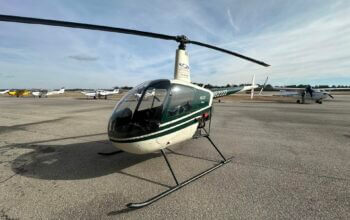
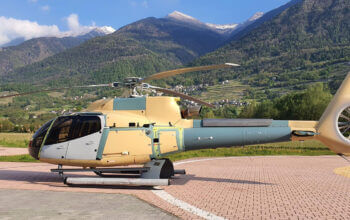

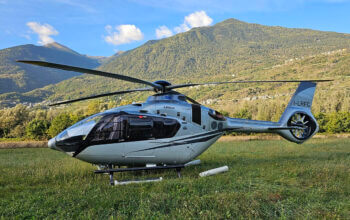
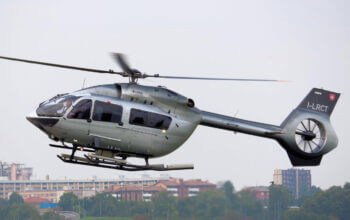

Finally Bombardier found in Eric Martel the true leader this innovative and unique company deserves!